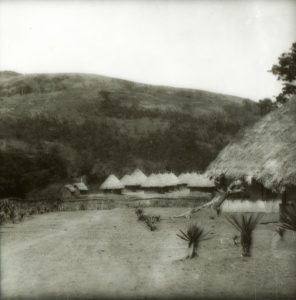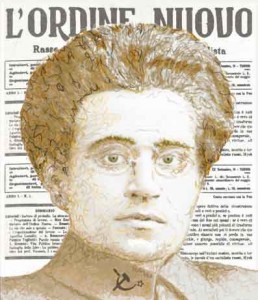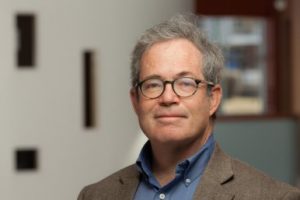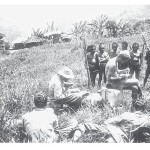Sjoerd Hofstra ~ Sierra Leone In The Years 1934-1936.
This category contains photographs made by researcher Sjoerd Hofstra (1898-1983). Most of the photographs were made in Sierra Leone in the years 1934-1936. His daughter, Marijke Gijswijt-Hofstra, has kindly agreed in making his photographs available with a CC-BY-SA license. Uploading and categorizing was done by staff members of the African Studies Centre Leiden (the Netherlands).

Four boys looking/listening. Sierra Leone, 1935. Collection Hofstra. Panguma (surroundings). Photograph: Sjoerd Hofstra
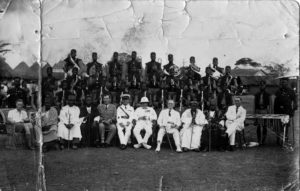
Seated company and military chapel standing behind, Kailahun May 1934. Front row from left to right: Sjoerd Hofstra, three chiefs, the assistant District Commissioner, the band master, the D.C. of Kailahun, an old English trader, two chiefs and a civil servant.
See more: https://commons.wikimedia.org/Sjoerd_Hofstra
Some Notes On Citizenship, Civil Society And Social Movements
Over the past decades, notions of citizenship and civil society have come to occupy a prominent place in Latin American political discourse. All kinds of activities have been attributed to civil society, including preventing a military solution to the Chiapas conflict in 1994. We also hear a great deal about “organized civil society,” “social movements of civil society” and “global civil society,” terms that have entered everyday political discourse and become incorporated into common sense, though this does not mean that everyone understands the same message when using these terms. Quite to the contrary, incorporation into common language may well be facilitated by a lack of specificity. Such fluidity suggests, above all, that citizenship and civil society are contested categories subject to “wars of interpretation” (Slater, 1998:385). This approach to such questions implies admitting that we cannot know exactly what citizenship and civil society “are” and recognizing that they are notions forged through political discourse and practice.
There is no such thing as society, there are individual men and women. — Margaret Thatcher, 19931
In this essay, I will outline some of the pathways the notion of citizenship has taken and how it has been reconfigured over the course of time. Taking Europe and Latin America as our main references, this discussion will show that what has been considered the foundation of citizenship has been conceptualized and practiced in distinct ways at different times and in different places. It will also discern how citizenship and civil society are mutually implicated social constructs. I will argue that in a first moment, civil rights were considered the primary foundation of citizenship and of the autonomous participation of the citizen in society. However, the conflicts generated by the social structure of 19th-century capitalist society contributed to the consolidation of social rights as a new basis for citizenship. In Latin America, in contrast, the incorporation of the population followed an itinerary distinct from that of Europe, which reveals specific forms of inclusion and exclusion. Finally, societal and economic changes in recent decades have given rise to new imageries of citizenship, which often center on consumer sovereignty as its vital element, a fact that has important implications for what we call civil society. Taking the example of Brazil, I will show that such views are not uncontested, but that they are challenged by a political imagery premised on the idea that citizenship itself can be a strategy employed in the search for a more inclusive and civil society. This theme is certainly ample, and I do not pretend to examine it exhaustively, but only to offer some food for thought. As noted, I consider citizenship and civil society to be interrelated notions and thus seek to put a certain distance between my perspective and views of civil society currently in vogue, which tend to define it as a space located somewhere beyond the market and the state. Instead, I seek to highlight the ways in which the market, the state and civil society all intersect in an effort to construct something that we might call a “political economy of citizenship.”
Read more
Fenneken Veldkamp ~ Farewell Interview With Ton Dietz As Director Of The African Studies Centre Leiden
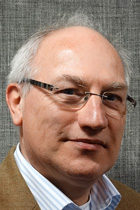 Ton Dietz, a human geographer, will retire as the director of the African Studies Centre Leiden and as a professor of African Development at Leiden University on 1 September 2017. On this occasion, we did a ‘farewell’ interview with him.
Ton Dietz, a human geographer, will retire as the director of the African Studies Centre Leiden and as a professor of African Development at Leiden University on 1 September 2017. On this occasion, we did a ‘farewell’ interview with him.
You have been the director of this Centre and a Professor of African Development at Leiden University since May 2010. What was a highlight for you during your directorship?
‘The best highlight – there were many – was the news that Chibuike Uche had been appointed as full Professor at the African Studies Centre, last April. Many things were combined in that: 1) It was the first official Professor we got as African Studies Centre. That was possible because of our successful merger with Leiden University. 2) It’s a subsidy for the next three years from the Ministry of Foreign Affairs, acknowledging the importance of what the African Studies Centre did and does for the Ministry. 3) The Chair was named after Stephen Ellis. And Stephen Ellis has been our most important, most influential scholar, who unfortunately died in 2015. And finally, it was very important to have a first African Professor as a member of our staff, and a Professor in a very important field: the Governance of Finance and Integrity in Africa. Which makes it clear that the political economy aspects of the study of Africa have become very much at the heart of the African Studies Centre, next to all the other things we are doing. The fact that Chibuike Uche has been appointed to this Chair for me is in fact a dream come true of what I see an African Studies Centre should be.’
In your inaugural address ‘Silverlining Africa’ in January 2011 you were optimistic about Africa, almost in a provocative way. You said:
‘Not long ago, the continent was seen as lagging behind, a sick place full of violence, hunger and disease, and either a threat to world stability or a disposable place to avoid. Now its image has shifted to one of hope, which is making Africa a hotspot in the new geopolitical reality of a multi-polar world.’
In the meantime, we have seen tremendous outbursts of violence, the Ebola virus epidemic and, recently again, millions of Africans threatened with starvation. Has the image, and reality, shifted to that of a sick place again?
‘As you rightly say: it was deliberate intention to provoke, because so many of the people who dealt with Africa, particularly in the media at that time, were still so much overwhelmed by this negative atmosphere, while the examples of things that did go well or were nice, were just minor experiences. I decided to try to flip the coin. In the 2000s it was already clear that Africa’s economies were experiencing high growth rates, that there clearly was a growing middle class. So it was not a story that was cooked, it was real.
Read more: http://www.ascleiden.nl/farewell-interview-ton-dietz
Trump And The Infrastructure Of Fascism
Infrastructure investment: it’s that economic policy sweet spot that everyone loves to love.
Fixing bridges, building roads, modernizing airports, improving mass transportation, keeping lead out of our water: nearly everyone can relate to the need for it and can imagine how much better their lives would be with more of it. For years, most people have faced crazy-making delays in traffic, long lines at airports, and have seen pictures of bridges collapsing. And the experts agree. Economists and engineers have warned us about the problem for decades. The most recent report by the American Society of Civil Engineers gave the U.S. a D+ on its infrastructure building and maintenance, which means that, overall, our infrastructure is in critical condition. These civil engineers estimate that over the next 10 years, the U.S. will have about a $1.2 trillion in infrastructure financing shortfall unless something dramatic is done. Studies have confirmed that, properly done, infrastructure investment can generate millions of jobs, create big time saving efficiencies, and keep people safer. These infrastructure shortfalls, fed by years of Republican austerity initiatives at the Federal and State levels, too often aided and abetted by Democratic bankers and other Democratic “deficit hawks,” are much in the everyday texture of American life.
On the campaign trail, then-candidate Trump jumped on the bandwagon, decrying America’s “Third World” infrastructure and touting his ability to fix it in short order—as “demonstrated” by his “building prowess “in New York City and “around the world.” Trump promised to quickly fix the country’s decaying infrastructure and generate millions of good paying job with a $1 trillion program that will “Make America Great Again.”
That Trump had hit a political “sweet spot” was made clear early on by the number of prominent Democrats and labor leaders who announced not only an interest but real enthusiasm for cooperating with Trump on making a $ 1 trillion building-spree a reality. How could they resist? A true, well designed, well-implemented $1 Trillion government investment in infrastructure is a plan many Democrats, progressive economists and labor leaders had been promoting for years. As Richard Trumpka, President of the AFL-CIO explained: “During my January meeting with President Trump, we identified a few important areas where compromise seemed possible. On manufacturing, infrastructure and especially trade, we were generally in agreement. Mr. Trump spoke of $1 trillion to rebuild our schools, roads and bridges. He challenged companies to keep jobs in the United States. He promoted ‘Buy America.’ He promised to renegotiate the North American Free Trade Agreement.” Read more
Pioneering Women War Correspondents
“Pioneering Women War Correspondents” profiles six trailblazing women journalists, including Peggy Hull, Martha Gellhorn, Marguerite Higgins and Dickey Chapelle, who reported from the front lines. Author Penny Colman narrates. Produced by Milena Jovanovitch
Marja J. Spierenburg ~ Strangers, Spirits, And Land Reforms : Conflicts About Land In Dande, Northern Zimbabwe
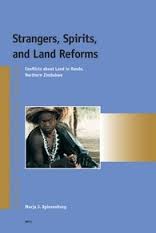 This book describes efforts by the Zimbabwean government to enforce land reforms on African farmers in northern Zimbabwe. These efforts compounded rather than alleviated the problem of land scarcity for black small-scale farmers, a problem government now allegedly seeks to redress through invasions of white-owned farms. The book describes the similarities between the post-Independence land reforms and those attempted by the Rhodesian regime.
This book describes efforts by the Zimbabwean government to enforce land reforms on African farmers in northern Zimbabwe. These efforts compounded rather than alleviated the problem of land scarcity for black small-scale farmers, a problem government now allegedly seeks to redress through invasions of white-owned farms. The book describes the similarities between the post-Independence land reforms and those attempted by the Rhodesian regime.
Afrika-Studiecentrum series, ISSN 1570-9310 ; vol. 3
Read the book (PDF): https://openaccess.leidenuniv.nl/handle/1887/18548
